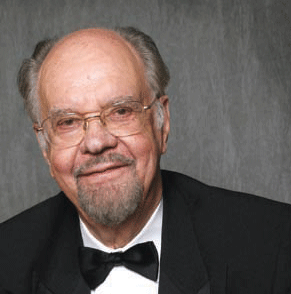Dr. Endel Tulving, A Neuroscience Pioneer
Still pushing boundaries
Endel Tulving, a renowned pioneer of memory research
 The year 2010 marked the retirement from Baycrest’s Rotman Research Institute (RRI) of a true giant in cognitive neuroscience: Dr. Endel Tulving (left), one of the first scientists to creatively consider and formally study human memory.
The year 2010 marked the retirement from Baycrest’s Rotman Research Institute (RRI) of a true giant in cognitive neuroscience: Dr. Endel Tulving (left), one of the first scientists to creatively consider and formally study human memory.
Dr. Tulving, who came to the RRI in 1992, says that when he began his work 60 years ago, experimental psychologists simply didn’t deal with concepts such as memory. He theorized – and then was able to prove – that our brains contain multiple memory systems, and that it would be possible to investigate and identify the role each system plays in cognitive performance.
One of Dr. Tulving’s best-known findings was the distinction be¬tween “episodic” and “semantic” memory. Semantic memory is the sum of all knowledge one has obtained – words, numbers, facts. Episodic memory refers to unique and concrete personal experiences.
Indeed, much of the research done by scientists at the RRI and elsewhere around the world rests firmly upon this foundation of imagination and knowledge. He explains that in the early 1970s, everyone accepted that there was just one kind of long-term memory.
“The majority of psychologists thought my theory was nonsense. People are not used to new ideas. But in science, the originators of a new idea have to present to the rest of the scientific community and then it is the duty of the community to prove you wrong,” he says. “So all the skeptics did their duty and tried very hard… Even now, there are still those who do not think this distinction is real. Thirty-five years later, I have convinced myself that it is really real!”
Although he says he is no longer doing “active science,” Dr. Tulving continues collaborating with others who are involved in cogni¬tive research. One of his current interests is something he calls “mental time travel” – the ability of the human mind to look back and also to think ahead.
“A normal person can travel back in time and also think about what they will do tomorrow, and we take this for granted,” he explains. “But many individuals with amnesia who do not remember their own past also cannot think about their own future. Thus, remembering the past and think¬ing about one’s future seem to be closely related. This is such a deep mystery and miracle because there is no known physical basis for it yet, but there must be. It is impossible for anything to happen in the mind that doesn’t happen in the brain.”
Dr. Tulving – who is now 84 and admits to having the occasional memory lapse – reflects on the recent and rapid development of brain-accessing technologies like positron emission tomography (PET) and, more recently, functional magnetic resonance imaging (fMRI).
When he began thinking about memory in the 1950s, the brain was a closed system. The idea that scientists would one day be able to observe neural activity in such detail was in the realm of science fiction. “The growth of this technology and of the Rotman Research Institute itself that I’ve witnessed in the past few decades is absolutely astounding to me,” he says.
Publications
Dr. Tulving’s article Consciousness of subjective time in the brain in Proceedings of the National Academy of Sciences of the United States of America, 2010.
Search Dr. Tulving's publications.
Trainee, Alice Kim
Privacy Statement | Disclaimer
© 2011 Baycrest. All Rights Reserved.